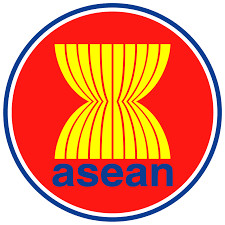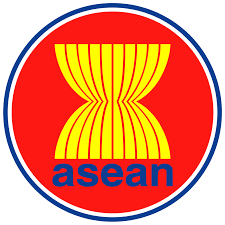
As the Association of Southeast Asian Nations (ASEAN) celebrates 50 years of existence, among the key issues facing the 10 member countries of the bloc are inclusive growth, harnessing the power of technology and simmering geopolitical tensions.
These three issues were identified as the key ideas for the region to concentrate on at debate during the World’s Economic Forum’s ASEAN meeting.
Aspiring to implement economic and financial integration across member nations, the ASEAN Economic Community was established in late 2015. Still, could taking a page from the European Union and embracing a monetary union as well, make the region better, many have wondered.
"I don't think we need to go so far to have a common union but if we can make borders become connection points in a way so that everybody benefits, you can exist within a trading bloc and not necessarily an EU model," said General Electric vice chairman John Rice.
Rice continued. "Countries must concentrate on fictional points, the things under the surface in terms of getting permits, approvals and moving goods from one place to the next. Those frictional costs are insidious when it comes to the cost of trade”, rather than uniting ASEAN with a single currency, a level playing field boasting free flow of human and financial capital would be more beneficial.
Grete Faremo, under-secretary-general and executive director at the United Nations Office for Project Services said that there are several lessons ASEAN can learn from the European model of integration, particularly amid current anti-globalization sentiment.
"It's all about inclusion and leaving no one behind…. What rules of engagement do we have to secure equal opportunities for all?"
Many Southeast Asian countries have leaned closer to Beijing, drawn by the promise of mainland investment, following U.S. President Donald Trump’s "America First" policy and Washington's exit from the Trans-Pacific Partnership trade deal.
George Yeo, chairman of Kerry Logistics and a former Singaporean politician stressed that amid the U.S.-Chinese rivalry, it's essential for ASEAN to refrain from choosing sides. "We must be friendly to everyone and embrace a neutral platform so the major economies have a vested interest in our well being."
A feather in ASEAN's cap is China's interest in the region, reflected by the country’s massive ‘One Belt, One Road’ project, he added. "In the next 10-20 years, ASEAN's infrastructure base will improve beyond recognition. There is a chance that many Southeast countries will now make it to first-world status, this is a historic opportunity… we shouldn't let natural tensions between neighbors to get out of hand."
Tan Sri Jamaludin Ibrahim, Axiata Group’s managing director and CEO warned that improvements in internet infrastructure, particularly broadband connectivity and speeds, are essential for development. He explained that governments can accelerate and tap into ASEAN’s young populations for better growth if broadband is part of the national agenda.
"It will benefit every aspect of society, particularly with financial inclusion. Broadband is an opportunity for us to leapfrog developed countries."
It's not entirely impossible to eliminate data roaming charges across the region, he added.
"The problem is that there are beneficiaries and losers. For example, Singapore is a beneficiary of roaming because it has lots inbound tourists, while Cambodia is on the other side of the coin. We have to find a mechanism to equate that."
(Source:www.cnbc.com)
These three issues were identified as the key ideas for the region to concentrate on at debate during the World’s Economic Forum’s ASEAN meeting.
Aspiring to implement economic and financial integration across member nations, the ASEAN Economic Community was established in late 2015. Still, could taking a page from the European Union and embracing a monetary union as well, make the region better, many have wondered.
"I don't think we need to go so far to have a common union but if we can make borders become connection points in a way so that everybody benefits, you can exist within a trading bloc and not necessarily an EU model," said General Electric vice chairman John Rice.
Rice continued. "Countries must concentrate on fictional points, the things under the surface in terms of getting permits, approvals and moving goods from one place to the next. Those frictional costs are insidious when it comes to the cost of trade”, rather than uniting ASEAN with a single currency, a level playing field boasting free flow of human and financial capital would be more beneficial.
Grete Faremo, under-secretary-general and executive director at the United Nations Office for Project Services said that there are several lessons ASEAN can learn from the European model of integration, particularly amid current anti-globalization sentiment.
"It's all about inclusion and leaving no one behind…. What rules of engagement do we have to secure equal opportunities for all?"
Many Southeast Asian countries have leaned closer to Beijing, drawn by the promise of mainland investment, following U.S. President Donald Trump’s "America First" policy and Washington's exit from the Trans-Pacific Partnership trade deal.
George Yeo, chairman of Kerry Logistics and a former Singaporean politician stressed that amid the U.S.-Chinese rivalry, it's essential for ASEAN to refrain from choosing sides. "We must be friendly to everyone and embrace a neutral platform so the major economies have a vested interest in our well being."
A feather in ASEAN's cap is China's interest in the region, reflected by the country’s massive ‘One Belt, One Road’ project, he added. "In the next 10-20 years, ASEAN's infrastructure base will improve beyond recognition. There is a chance that many Southeast countries will now make it to first-world status, this is a historic opportunity… we shouldn't let natural tensions between neighbors to get out of hand."
Tan Sri Jamaludin Ibrahim, Axiata Group’s managing director and CEO warned that improvements in internet infrastructure, particularly broadband connectivity and speeds, are essential for development. He explained that governments can accelerate and tap into ASEAN’s young populations for better growth if broadband is part of the national agenda.
"It will benefit every aspect of society, particularly with financial inclusion. Broadband is an opportunity for us to leapfrog developed countries."
It's not entirely impossible to eliminate data roaming charges across the region, he added.
"The problem is that there are beneficiaries and losers. For example, Singapore is a beneficiary of roaming because it has lots inbound tourists, while Cambodia is on the other side of the coin. We have to find a mechanism to equate that."
(Source:www.cnbc.com)





